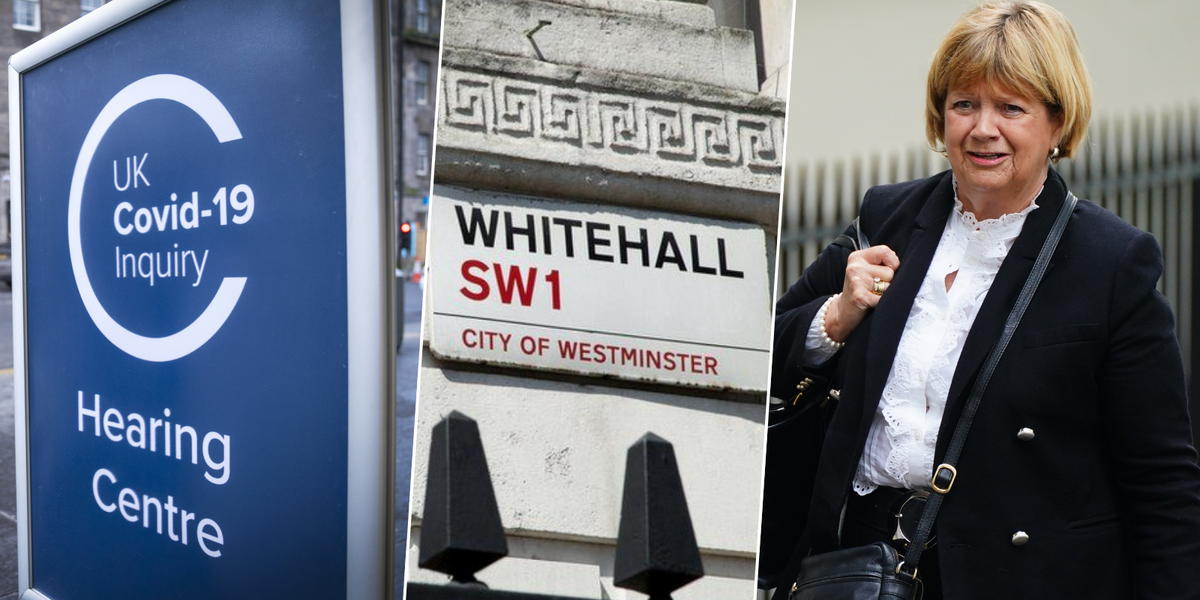The UK’s Covid inquiry is set to be the most expensive in history, it has been revealed, after figures emerged revealing the probe was costing British taxpayers a staggering £300,000 every day for the last year.
The inquiry has, just in the last financial year, spent £70million on investigating the UK’s “preparedness and response to the Covid-19 pandemic”, raising its total expenditure to £94m since it started.
At current rates, the inquiry is set to cost Britons £200m by the time it produces its final report at the end of 2026, pushing it past the £195m spent on the 12-year-long Saville inquiry into the deaths of 13 people on Bloody Sunday, and totalling nearly 10 times as much as the cost of the Leveson inquiry.
As well as the money the inquiry has been spending – and is set to spend – itself, taxpayers will also have to stump up for additional costs incurred by a cast of hundreds in the Civil Service supporting Baroness Hallett’s inquiry.
Baroness Hallett’s inquiry and its associated costs could set taxpayers back by over £200million by 2026
Getty/PA
A total of 265 civil servants are working round the clock on providing documentary evidence for the inquiry and preparing government witnesses to give evidence – which cost Whitehall an additional £100,000 every day last year, according to separate figures published by the government this week.
Last year, this cost taxpayers £18million, alongside a further £26million spent on legal advice.
And it’s not just Whitehall – the Scottish government has so far spent £21million on its own Covid inquiry, while other publicly-funded bodies will have to bear costs associated with providing evidence to the probe.
The shocking analysis was undertaken by the TaxPayers’ Alliance, which said Baroness Hallett’s inquiry was on track to be the most expensive of the UK’s 22 completed statutory inquiries since 2005.
MORE ON COVID:
The Scottish government has so far spent £21m on its own Covid inquiry
PA
The format of the inquiry itself has come under fire, including from the University of Oxford’s Professor Carl Heneghan, who has given evidence at the probe.
Prof Heneghan said: “This is an exorbitant amount of money but the entire way the inquiry has been structured is designed to be expensive.
“It is setting itself to take sides with a legalistic approach which is not the best way to learn lessons. It would be much cheaper and more effective if it actually took the approach of medicine and said we accept that errors were made, and look at how we should do things differently in future.”
And the TaxPayers’ Alliance’s chief exec John O’Connell said that while learning lessons through the inquiry was vital, there was “little sign that we will be left with much more than an eye-watering bill when it finally comes to an end”, adding: “The Covid inquiry should be short, sharp and decisive, not an expensive political pantomime.”
But the Bloody Sunday inquiry’s Mark Saville, Baron Saville of Newdigate, defended the costs.
Baron Saville said: “It has got to be thorough and it has got to be fair… That takes time and expertise which is expensive. I have deep sympathy for the inquiry, because when I was carrying out my work I was bitterly criticised for the cost – but no one could ever say how it could be done better or more cheaply.
“These are very complicated and contentious issues which require highly skilled people and they are going to cost you. I wouldn’t be surprised at all if it costs more than my inquiry.”
A Covid inquiry spokesperson said: “It was the government’s decision to set up this public inquiry with very broad terms of reference. The inquiry’s scope is exceptionally wide and touches on the work of many government departments in all four nations of the UK. It is obliged to gather evidence from many organisations, especially those at the centre of responding to the pandemic.”
A government spokesman said: “To ensure transparency the government is committed to publishing its costs responding to the inquiry. This is in line with the inquiry’s own quarterly financial reports.”

